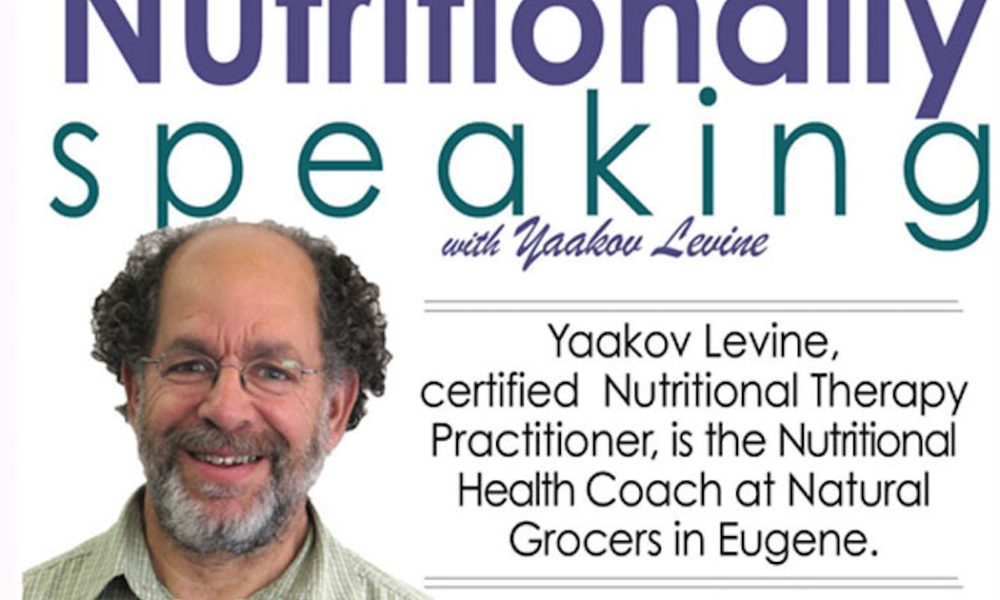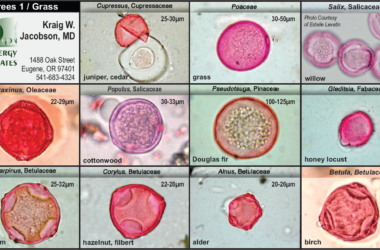
As we age it is even more important to find a way of eating that will satisfy our taste buds but not contribute to degenerative health issues. Eating a traditional, nutrient-dense diet, which these days is often called a ”paleo” or ”primal” diet, may just be your ticket to optimal health.
With all of the resources online and in print that focus on a specific dietary concept, it it is sometimes hard to choose among them. As a nutritionist, I particularly appreciate cookbooks that include important information about the benefits of a particular diet plan in addition to appealing, healthy recipes. ”Primal Cuisine: Cooking for the Paleo Diet,” by chef Pauli Halstead, offers both.
In the first part of her book, Halstead presents a comprehensive overview of the primal diet, suitable both for those experienced in this healthy style of eating and for newcomers. In the second part of her book, she provides over 150 diverse recipes that support the primal lifestyle.
This cookbook can be considered a companion book to Nora Gedgaudas’s informative ”Primal Body, Primal Mind.” As Gedgaudes notes in the book’s forward, ”This book is family friendly, replete with familiar ingredients that most people will have handy in their homes or find easily in their local natural markets.”
Other authors that influenced Halstead’s dietary approach include Diana Schwarzbein, MD, author of ”The Schwarzbein Principle” and Mark Hyman, MD, who wrote ”The UltraMind Solution.”
As a successful chef and caterer, Halstead worked hard to earn a reputation for creating imaginative and great-tasting foods. With the knowledge she gained from these and other teachers, she adopted a diet free from chemical food additives, refined grain products, sugars and trans fats, and began to create healthier versions of her recipes.
From Hyman and Gedgaudas, Halstead also learned about the importance of eating meat and dairy products from exclusively grass-fed or pastured animals. She explains that grass-fed meat is rich in vital nutrients, such as omega-3 fatty acids, conjugated linoleic acid and the substance Dr. Weston A. Price called activator X, which is critical for vitamin D absorption.
She laments that meat that is not completely grass-fed is often marketed as such, and suggests asking your butcher for exclusively grass-fed meat with ”no grain finishing at all.”
The author discusses the early cultivation of grains, which along with the advent of animal husbandry led to the widespread replacement of our hunter-gatherer diet with one largely based on cereal grains and processed dairy. She states that there is now much evidence supporting the theory that consumption of grains ”has caused nutritional stress and has negatively impacted human health.”
Other topics covered in the book include healthy fats, protein requirements, cholesterol, gluten and casein, genetically modified foods, synthetic food additives and sugar.
In a chapter titled the ”Paleo Pantry: Setting the Stage for Success,” Halstead provides a list of recommended cooking tools, many of which are likely to be found in most kitchens. She also suggests basic pantry items with which to stock the kitchen, including healthy fats such as olive oil, coconut oil, ghee and lard, a host of flavorful spices and herbs, mineral-rich salts, vinegars, sugar substitutes, cheeses and non-dairy milks.
In a section about nuts and seeds, she includes a handy chart with recommended soaking times for best digestion. This chapter concludes with suggestions to shop locally at farmers’ markets and to grow as much of our own food as possible.
Before proceeding to the recipes, Halstead explains that her portions are sized to limit protein content to what she considers healthy levels (no more than 25 grams of pure protein per meal). She points out that, throughout the recipes, she provides substitution suggestions for those who have food sensitivities or allergies, and that every product she recommends ”has been screened to be 100 percent gluten-free.”
The first recipe I tried was from the chapter titled ”A Good Breakfast.” As one who enjoys breakfast for dinner, I prepared the recipe for Vegetable Frittata for a late-in-the-day meal. One of my tests for a cookbook is that I can pick a recipe and, with my relatively well-stocked kitchen, be able to cook a meal without first making a trip to the store. This recipe passed that test.
I did not have the parmesan cheese called for in the recipe for the topping in my refrigerator, but Halstead offered a simple recipe for a parmesan substitute. The pan-fried (in butter) walnuts, which were then pulsed in the food processor and mixed with nutritional yeast and sea salt, made a delicious, crusty topping. This dish was a success and will be on my list for future meals.
A chapter called ”Paleo Party” focuses on various hors d’oeuvres and dips, including Olives with Orange and Fennel, Pacific Rim Tuna Salsa and Thai Beef Satay. ”Soulful Soups” provides directions for making chicken stock, vegetable and fish stocks, as well as an array of appetizing soups and chowders. There are also chapters for condiments and sauces, such as Very Green Herb Sauce, and vegetable dishes, including Sautéed Broccoli Rabe with Pecorino Romano and Japanese Brussels Sprouts with Shiitake Mushrooms.
Wild-caught seafood, grass-fed meats and pastured poultry each has its own chapter, with recipes such as Pan-Seared Salmon with Avocado Slices and Lime Dressing; Braised Short Ribs with Cauliflower Puree, Brussels Sprouts, and Caramelized Apples; and Roast Breast of Duck with Port Sauce and Pear Salad. The dessert chapter contains recipes free of gluten, refined sugar, honey, maple syrup and agave.
This cookbook and guide for eating a healthy primal diet has a wide range of recipes for both the beginner and the gourmet cook. Chef Halstead has indeed done her homework and offers this guide to fun, wholesome and nutritious meals, from appetizers to what she calls her dessert recipes: ”Perfect Endings.”
This book may be available at your library or for purchase at your favorite bookstore. Salud!
At Natural Grocers in Eugene, where I am the store’s Nutritional Health Coach, we offer free classes that include plenty of information about healthy eating choices, and free one-on-one health coaching sessions (call 541-345-3300). Please “like” our Natural Grocers-Eugene Facebook page. Find our store’s schedule of free classes at: https://www.naturalgrocers.com/store-location/eugene/.







